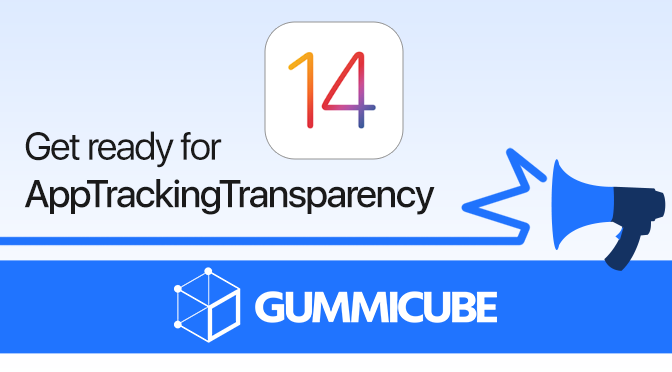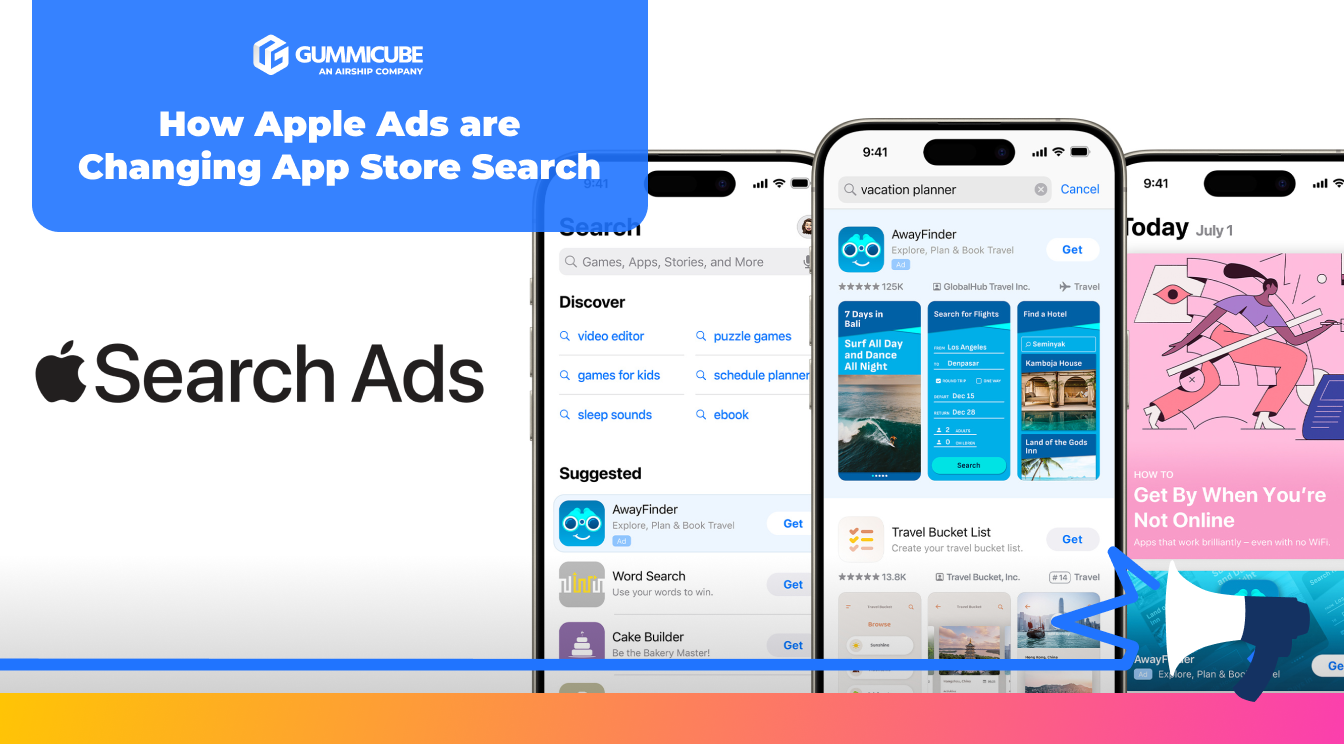
Netflix is Changing Strategies to Elevate User Engagement
Posted on February 5th, 2026
Netflix’s mobile revamp is a strategic acknowledgment that user behavior has shifted toward social-first, vertically consumed, algorithmically surfaced content.

iOS 14 is getting another “facelift” with its upcoming release of iOS 14.5 with AppTrackingTransparency.
In an April 5 announcement, Apple reminded developers that they will need to update their apps and use the AppTrackingTransparency framework- otherwise they risk rejection or removal.
The statement reads as follows:
Make sure your apps are ready for iOS 14.5, iPadOS 14.5, and tvOS 14.5. With the upcoming public release, all apps must use the AppTrackingTransparency framework to request the user's permission to track them or to access their device's advertising identifier. Unless you receive permission from the user to enable tracking, the device's advertising identifier value will be all zeros and you may not track them.When submitting your app for review, any other form of tracking — for example, by name or email address — must be declared in the product page's App Store Privacy Information section and be performed only if permission is granted through AppTrackingTransparency. You'll also need to include a purpose string in the system prompt to explain why you'd like to track the user, per App Store Review Guideline 5.1.2(i). These requirements apply to all apps starting with the public release of iOS 14.5, iPadOS 14.5, and tvOS 14.5.As a reminder, collecting device and usage data with the intent of deriving a unique representation of a user, or fingerprinting, continues to be a violation of the Apple Developer Program License Agreement.
Though iOS 14.5 is not out yet, some developers are reporting Apple is rejecting apps ahead of the update. As the month started, almost as if it were an April Fool’s joke, thousands of apps were hit with rejections, citing data privacy concerns. This foreshadows what could soon happen with the release of iOS 14.5.
With the release of iOS 14.5, developers will outright be rejected for any type of third-party tracking that falls outside of Apple’s guidelines. The strict stance was hinted at since the release of iOS 14 in September 2020, all while apple has made continued updates towards increased user privacy and transparency, including its App Store Privacy Labels.
With its teaser in September, Apple announced that granular user tracking, traditionally used to improve and optimize ad targeting, will cease to exist at its current level. This is to be replaced with Apple’s own SKAdNetwork framework to provide developers with a higher-level view of tracking.
The sooner a developer is able to update their app, the safer they will be, especially considering early reports of rejections.
If you’re a developer, yes. Your app must be updated in accordance to the Apple Developer Program License Agreement.
In Article 5.1.2 of the App Store Review Guidelines, Apple outlines:
(i) You must receive explicit permission from users via the App Tracking Transparency APIs to track their activity. Learn more about tracking. Apps that share user data without user consent or otherwise complying with data privacy laws may be removed from sale and may result in your removal from the Apple Developer Program.(vi) Data gathered from the HomeKit API, HealthKit, Clinical Health Records API, MovementDisorder APIs, ClassKit or from depth and/or facial mapping tools (e.g. ARKit, Camera APIs, or Photo APIs) may not be used for marketing, advertising or use-based data mining, including by third parties.
If you’re a user, you will see a new notification requesting you to opt-in (rather than be opted in by default, unless changed in the settings panel) to allow apps to track and share your data with third parties. The ads you see may also change, depending on how you allow your data to be tracked and shared, and how the apps you use change their marketing strategy due to this change.
If you’re already wary of how other companies handle your data, or are concerned about how targeted ads are getting on your own social media, Apple is protecting you from exactly that. Users now can control exactly what gets shared.
Every mobile attribution tool on the market has been scrambling to figure out what to do and how to handle the iOS 14 changes. Adjust, AppsFlyer and Singular have all released game plans for their partners to understand how they can handle the change, while still getting the information that they need to keep improving their apps.
Only time will tell us how the iOS 14.5 update will impact tracking and mobile advertising as a whole. It’s been a long seven months since the original announcement and Apple has kept everyone on their toes.
Want to learn more about App Store Optimization? Contact Gummicube and we’ll help get your strategy started.

Netflix’s mobile revamp is a strategic acknowledgment that user behavior has shifted toward social-first, vertically consumed, algorithmically surfaced content.

Apple’s upcoming Siri update, powered by Google’s Gemini AI model, represents a meaningful inflection point for the App Store ecosystem and ASO strategies.

Apple Ads are changing App Store search by expanding ad placements while simultaneously reinforcing relevance as the core driver of visibility. Read more!